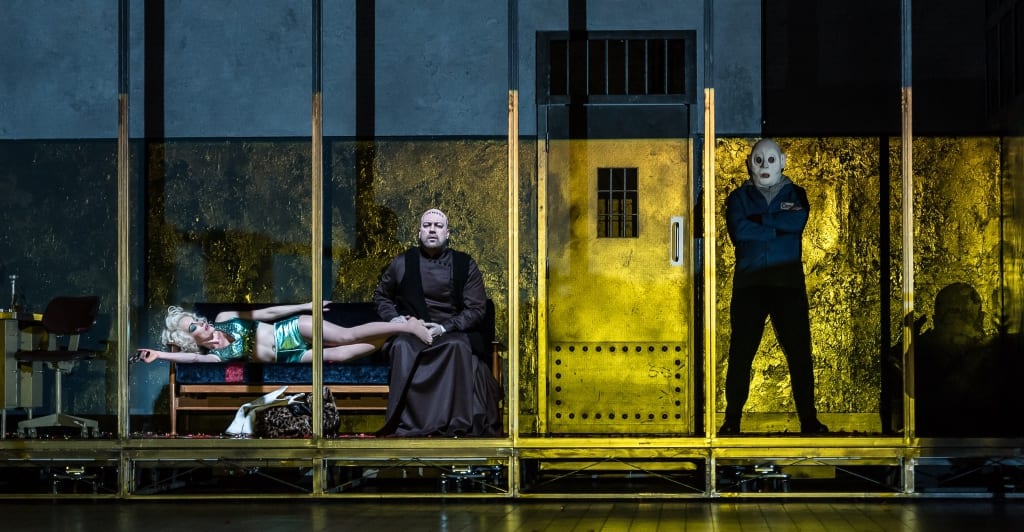‘In every creature, a spark of God’ wrote the composer on the title page of this, his last opera, now given its first ever Covent Garden performance. This is the clue to unravelling any positive meaning in what is otherwise a remorselessly bleak opera based on Dostoevsky’s semi-autobiographical novel set in a Siberian prison camp. There is no plot, merely a sequence of dark personal narratives by some of the prisoners, in which they recount the betrayals and violent committed by and on them which have led to their current incarceration. There is little light relief, except in a sardonic play-within-a-play in the second act, and little evidence of redemption for anyone at the end, and especially so in this performing version which strips out well-meaning additions and restores the opera to the stark pristine state in which Janáček left it at his death in 1928. Only in the idea that every murderer had a mother, and must still contain some redeeming features is any fleeting hope to be found.
Ninety years after its composition From the House of the Dead still comes over as a grimly modern and uncomfortable piece. The jagged, dissonant orchestration, exploring extremes of what instruments can do, retains a few moments of solo sweetness, but even this is dampened down in Mark Wigglesworth’s brilliant, urgent but ultimately cold delivery of the score. Equally original is the layout of the casting which avoids any obvious heroic leads, and settles instead for an ensemble of almost entirely male voices, with equally weighted parts.
One of the most impressive aspects of the evening is the casting where there are no weak links. Willard White provides gravitas and warmth when the score allows it, as the nobleman who is the only prisoner to find release from this nightmare world of random brutality and psychological collapse. His scenes with Pascal Charbonneau’s vulnerable Tatar youth Aljeja are genuinely touching. Otherwise it is a record of violence breeding further violence, with women, almost entirely absent here except for a prostitute, often the target. Štefan Margita and Johan Reuter are quite as much sinners as sinned against, but their unlovely characters command attention as depicted here and are appropriately linked in both life and (for one of them) death. Ladislav Elgr makes an effective and engaging house debut in a slightly more sympathetic role as we see his sanity gradually slipping away from him under the pressure of events.
While the foundations of the evening are sound, the interventions of the creative team are largely counterproductive, with the trademark style of a Warlikowski production here interrupting rather than enhancing the overall effect. The preludes to each act are overlaid with video interviews from Michel Foucault and a real prisoner that have their own interest, but detract from what is already taking place very legibly in the pit. The set designs by Małgorzata Szczęśniak lose the necessary sense of claustrophobia in favour of an anonymous gymnasium and a sliding box that gives awkward sightlines to sections of the auditorium. Above all there is simply too much extraneous business that at all times distracts from the characters and story under the spotlight and drains the drama of energy despite all the surface activity.
This interpretation works best in the coarse humour of the second act playlets that the prisoners put on during a holiday: here all the self-conscious energy and prop-heavy playfulness has a plausible and occasionally amusing conduit. Also the substitution of a wounded prisoner for the wounded eagle as a symbol of rebirth rids the opera of one potentially risible plot device in favour of another that softens the ending a little, and this time legitimately so. But as a governing concept this reading only incidentally adds to the original. As David Pountney has shown in Wales this opera packs such a punch on its own it is more respectful and memorable in the end just to play it straight.
It is hard to imagine a better and better balanced cast, and the orchestra is on peerless form; but the quality of the final result is impaired by a production that fails to trust the story-telling potential of the original, and gets in the way of the drama more than illuminating it.

